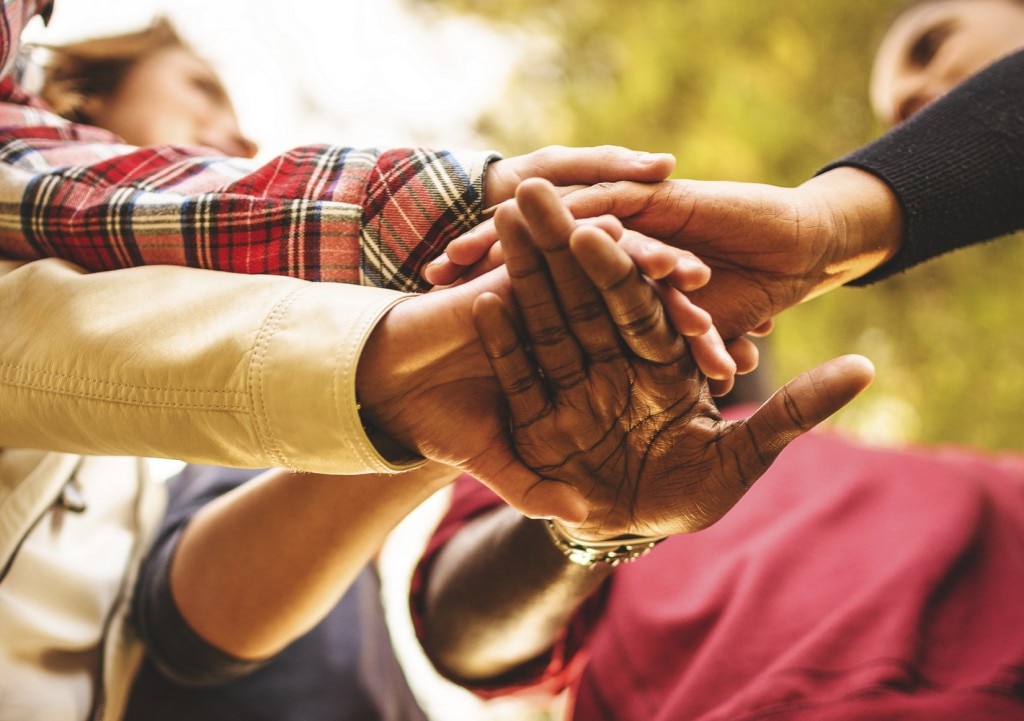“Compassion,” wrote philosopher Arthur Schopenhauer, “is the basis of morality.” Not that it’s always easy.
There’s a lot of tension and despair in the world right now as people lose their homes and jobs, with an ever-growing demographic finding themselves overwhelmed with debt. Financial restraints mean putting dreams into a holding pattern, and the associated ongoing stress can snowball into damaged relationships, unhappy mood and lowered immune health. And some people just seem to have an unpleasant disposition, regardless of their circumstances. 
Whether this describes you or someone you know, researchers have found that giving, forgiving and committing unexpected acts of kindness—towards yourself and others—can actually make you happier, help you build relationships and avoid negativity bias.
“There is nothing as important to our happiness as feeling connected with others—an experience largely dependent upon our ability to generate compassion,” says Andrea Polard, PsyD, author of A Unified Theory of Happiness (Sounds True, 2012). “It’s for this reason that both Eastern and Western religions emphasize compassion.”
In a three-part study published in April 2006 in Psychological Science, researchers from Northeastern University found that people who practice gratitude are more likely to help others, even when that assistance is not easy. This in turn encourages pro-social behavior and relationship building, the researchers concluded.
Steps to build compassion
That’s all well and good, but what if you’re not feeling particularly kind these days? If approached mindfully, Polard says, our sense of compassion can be nurtured and developed.
“You can use your biological tendencies to do this,” she says. “You know how much easier it is to display kindness to your kin as opposed to a stranger? We are wired that way—otherwise, fathers would not schlep the groceries for the family after a long day of work, and mothers would not nurse and comfort their newborns in the middle of the night. Our biology helps our species survive.”
Polard offers the following tips to boost your compassion capacity.
1. Think of family first.
When you have a particularly hard time feeling compassion for someone else, Polard suggests you start calling her your daughter, your mom or your sister in your head. The next time someone less fortunate holds out his hand, think of him as your son, your father or your brother. “Mumble the word to yourself and connect with the sentiment this creates. Listen to that warm, fuzzy feeling, give in and act accordingly—your family has just grown bigger,” she says.
2. Make a vow.
Follow Buddhism’s Bodhisattva Vow, making a pledge to help others find inner peace rather than seeking it for yourself. “Taking a vow helps free us from our preoccupation with ourselves, from egotistical, predominantly negative states such as greed, fear and anger—states that tend to spin a cocoon around us,” Polard says. “There is no happiness in isolation for social beings. We need to fly around with a bunch of other butterflies. A personalized version of the vow can remind us of the simple truth that we depend on others; that we are, in a sense, others.”
Polard suggests using the vow “I pledge to reduce suffering and promote happiness for the community to which I belong.” Write it down, place it near your bed and repeat it every morning as you open your eyes.
3. Embrace your imperfections.
Sometimes, what makes us turn away from a lonely stranger in need of a kind word, or a seemingly unpleasant person who may be a victim of repeated unkindness, is the deep recognition of our own personal weaknesses. For this reason, says Polard, it’s essential that we acknowledge and embrace our myriad imperfections.
“It is particularly difficult to generate compassion when we reject and judge others for their weaknesses. Often, looking down or looking away comes fast and furiously when we’re triggered in some way—most likely fearing that we, too, are weak,” she says. “Muster your courage right now and admit ‘I am imperfect, just as everybody else.’ Accept this fact and embrace it full-heartedly. Practicing radical self-acceptance is the magic bullet of compassion.”
Related reading: Discover the health benefits of volunteering
